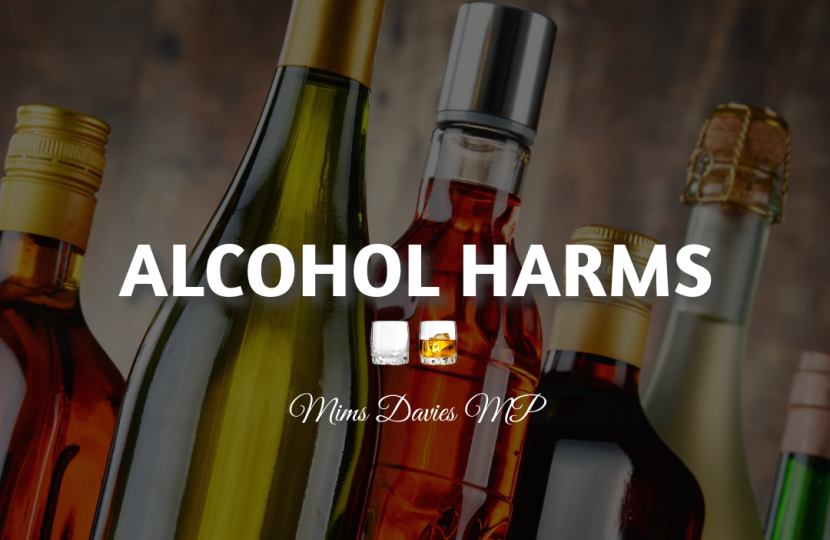
The consumption of alcohol is a source of pleasure for millions of people across this country, and evidence suggests that the majority drink moderately and do not exceed the recommended number of units per week. That said, I fully recognise the significant harm that the misuse of alcohol can inflict on a minority of individuals, the families of those affected by addiction and local communities.
Whilst there are no plans to publish a standalone Alcohol Strategy, the Government is working to tackle alcohol harm and misuse in several areas. This includes providing investment through several programmes to tackle alcohol misuse, working through bodies like NHS England. Local authorities across England will benefit from an extra £532 million of additional government funding through to 2024/25 to improve drug and alcohol addiction treatment.
The extra funding means that total local authority funding for treatment will have increased 40 per cent between 2020 to 2021 and 2024 to 2025 and will enable the creation of over 50,000 high-quality places in drug and alcohol treatment. Improving and expanding treatment and recovery services is central to the drug strategy mission and this cannot be achieved without a resilient, well-trained and properly supported workforce.
I have provided a link to the newly published (15.05.24) 10 Year Strategic plan for the drug and alcohol treatment and recovery workforce for your interest:
It is important that people have accurate information and clear advice about alcohol and its health risks, allowing them to make informed choices about their drinking.
Industry self-regulation - provided through guidance from the Portman Group - is helping to ensure high coverage of best practice around alcohol labelling, with their research suggesting that 99 per cent of products carry pregnancy warnings, and almost four in five products carry the Chief Medical Officers’ low risk guidelines.
Whilst around half of all alcoholic drinks feature calorie information on products, the Government is committed to consult on whether mandatory calorie labelling should be introduced on pre-packed alcohol and alcohol sold in the out-of-home sector. The Government also continues to promote the low risk drinking guidelines through public health messaging such as the “Better Health” campaign and the Drink Free Days app.
The Government ran a consultation on updating labelling guidance for no and low-alcohol alternative products. Responses to the consultation are being considered and the Government will provide an update in due course. By increasing the alcohol free-descriptor and making low and no-alcohol products more available, this will help to increase consumer choice and reduce excessive alcohol consumption.
There is strong evidence for inpatient detoxification units as an intervention in drug and alcohol treatment programmes. I know that the NHS Addictions Provider Alliance works hard to support service users, carers and other organisations to make a positive difference within drug, alcohol, gambling and gaming treatment and support. Local authorities are responsible for assessing local needs and commissioning alcohol and drug treatment services to meet these needs, including inpatient detoxification.
However, the Government is providing investment through different avenues to promote access to these vital services. As part of the Drugs Strategy, £533 million has been allocated towards drug and alcohol treatment over three years, including inpatient detoxification units. Expanding the provision of detoxification units is expected to contribute to a reduction in drug-related deaths in England, and I will continue to monitor progress in this area.
I agree that enabling people who are living with alcohol addiction to access detoxification units is important, and I know my colleagues in the Department of Health and Social Care are equally committed to ensuring people can access the support that they need, wherever they live.




